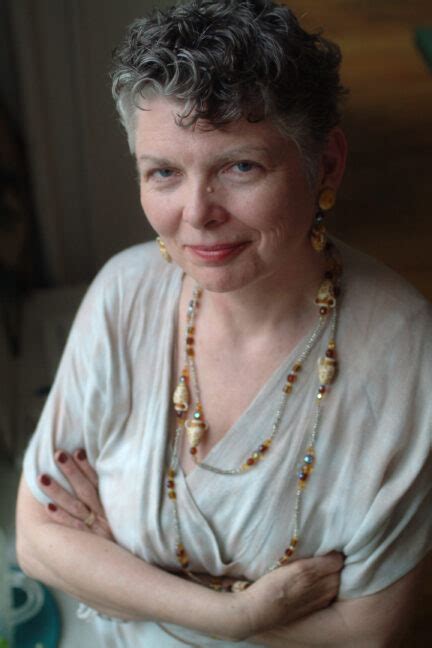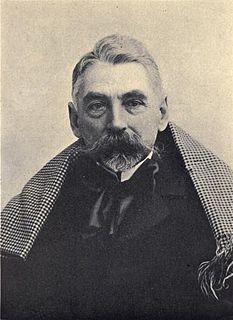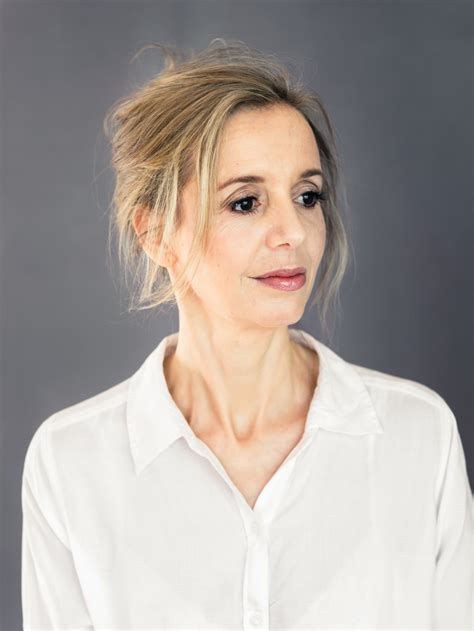A Quote by Minnie Bruce Pratt
I began to write poetry again in 1975, when I fell in love with another woman. I returned to poetry not because I had “become a lesbian”—but because I had returned to my own body after years of alienation. The sensual details of life are the raw materials of a poet—and with that falling-in-love I was able to return to living fully in my own fleshly self.
Related Quotes
There is only beauty / and it has only one perfect expression / poetry. All the rest is a lie /except for those who live by the body, love, and, that love of the mind, friendship. For me, Poetry takes the place of love, because it is enamored of itself, and because its sensual delight falls back deliciously in my soul.
What the world wants, what the world is waiting for, is not Modern Poetry or Classical Poetry or Neo-Classical Poetry - but Good Poetry. And the dreadful disreputable doubt, which stirs in my own skeptical mind, is doubt about whether it would really matter much what style a poet chose to write in, in any period, as long as he wrote Good poetry.
I did not always know I would be a writer. Until I had a room of my own, I did not write much at all - no more than any other child who read a lot of books. I began to write fiction and poetry when I first had a room that was truly my own with a door that shut and some measure, however fragile, of privacy.
Even though novels were the love of my life, I started off writing poetry. I think because I had a knack for image and lyricism, even though I didn't really have anything to write about, or I didn't know what to write about. I could just couple words together that pleased me and so poetry seemed sort of natural.
Speaking of people I had to exclude: Hank Williams. which is to say, songs are part of lyric poetry in my book, my thinking. In fact they are the urgent element of poetry in our time, they carry the most emotion for the most people in our culture. everyone LOVES poetry, because we all love (one form or another) of rock and roll (be it folk to emo to rap). It's all rock and roll and all lyric poetry.
Why do you love the woman you're in love with? Because she is. And that, after all, is God's own definition of Himself; I am that I am. The girl is who she is. Some of her isness spills over and impregnates the entire universe. Objects and events cease to be mere representations of classes and become their own uniqueness; cease to be illustrations of verbal abstractions and become fully concrete. Then you stop being in love, and the universe collapses, with an almost audible squeak of derision, into its normal insignificance.
A true poet is more than just a man who can write a poem with a pen. A true poet writes poetry with his very life. A true poet doesn't use poetic devices to con the heart of a woman but uses the beauty of all that is poetic to serve, cherish, and express love to the heart of a woman. Just as a true warrior is not a conqueror of femininity but a protector of femininity, a true poet is not just a wooer of a woman's heart but one who knows how to nurture and plant love in a woman's heart. Simply put, a true poet is a man who knows how to be intimate with a lover - first and foremost with Christ.
When I talk about unrequited love, most of you probably think about romantic love, but there are many other kinds of love that are not adequately returned, if they are returned at all. An angry adolescent may not love her mother back as her mother loves her; an abusive father doesn't return the innocent open love of his young child. But grief is the ultimate unrequieted love. However hard and however long we love someone who has died, they can never love us back. At least that is how it feels.




































